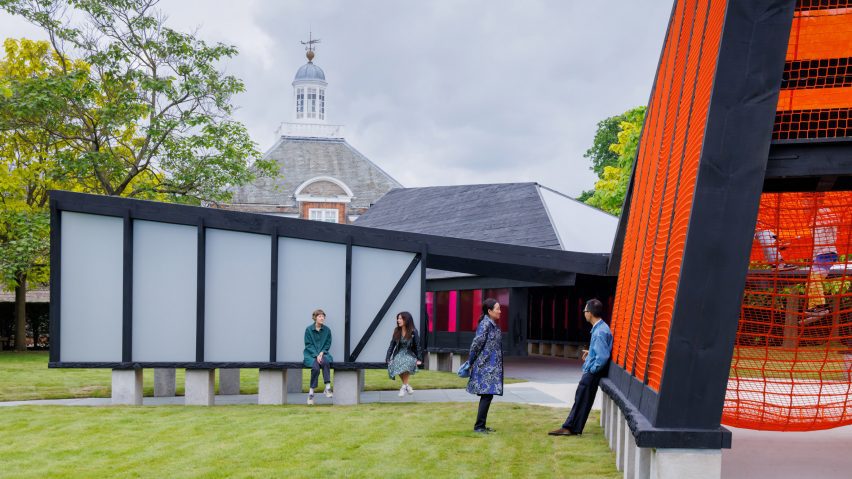The first pictures of architect Minsuk Cho's star-shaped Serpentine Pavilion, which is named Archipelagic Void, have been revealed.
Set to open to the public this Friday, the pavilion in London's Kensington Gardens is the Seoul-based architect's first building in the UK.
The pavilion consists of five structures arranged in a star shape around a central, circular void that is informed by madangs – small courtyards found at the centre of historic Korean houses.
Cho, who is the founder of Mass Studies, is the 23rd person to be commissioned for the Serpentine Pavilion since the first structure was designed by architect Zaha Hadid in 2000.
He aimed to build on the ideas of previous pavilions and the history of the site in Kensington Garden in central London.
"[The madang] serves activities ranging from individual every day, to larger collective rituals," Cho told Dezeen in a video published last week. "It's an absence for people to converge in."
"This request felt like we were given a great riddle to demonstrate what this pavilion can do at this point," added Cho.
"We understand architecture itself is not a beginning-to-end narrative but is part of a larger act that is in between many befores and afters," said Cho.
Archipelagic Void follows Lina Ghotmeh's Serpentine Pavilion, named À Table, created last year and the Black Chapel designed by artist and designer Theaster Gates in 2022.
Previous Serpentine Pavilions have been built by architects such as Frida Escobedo, Bjarke Ingels and Sou Fujimoto.
Cho is best known internationally as the co-curator of the Golden Lion-winning Korean pavilion at the 2014 Venice Architecture Biennale.
Other projects designed by his studio Mass Studies include the Republic of Korea Pavilion at Shanghai Expo 2010 and the Songwon Art Centre.
The photography is by Iwan Baan, courtesy of Serpentine Galleries, unless stated otherwise.

